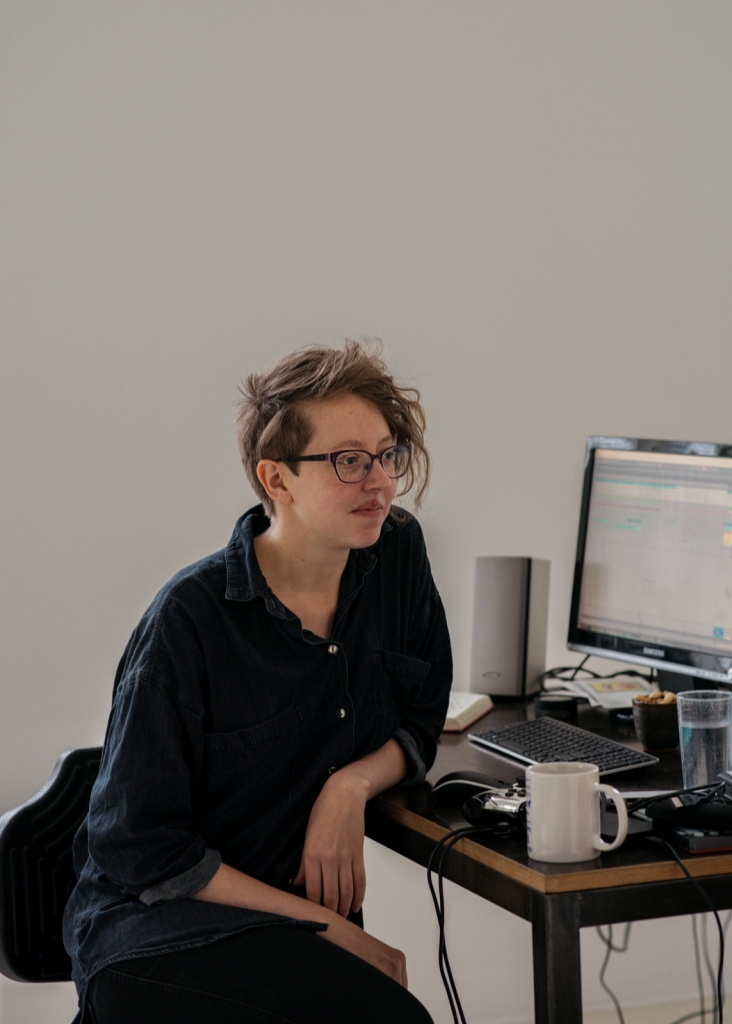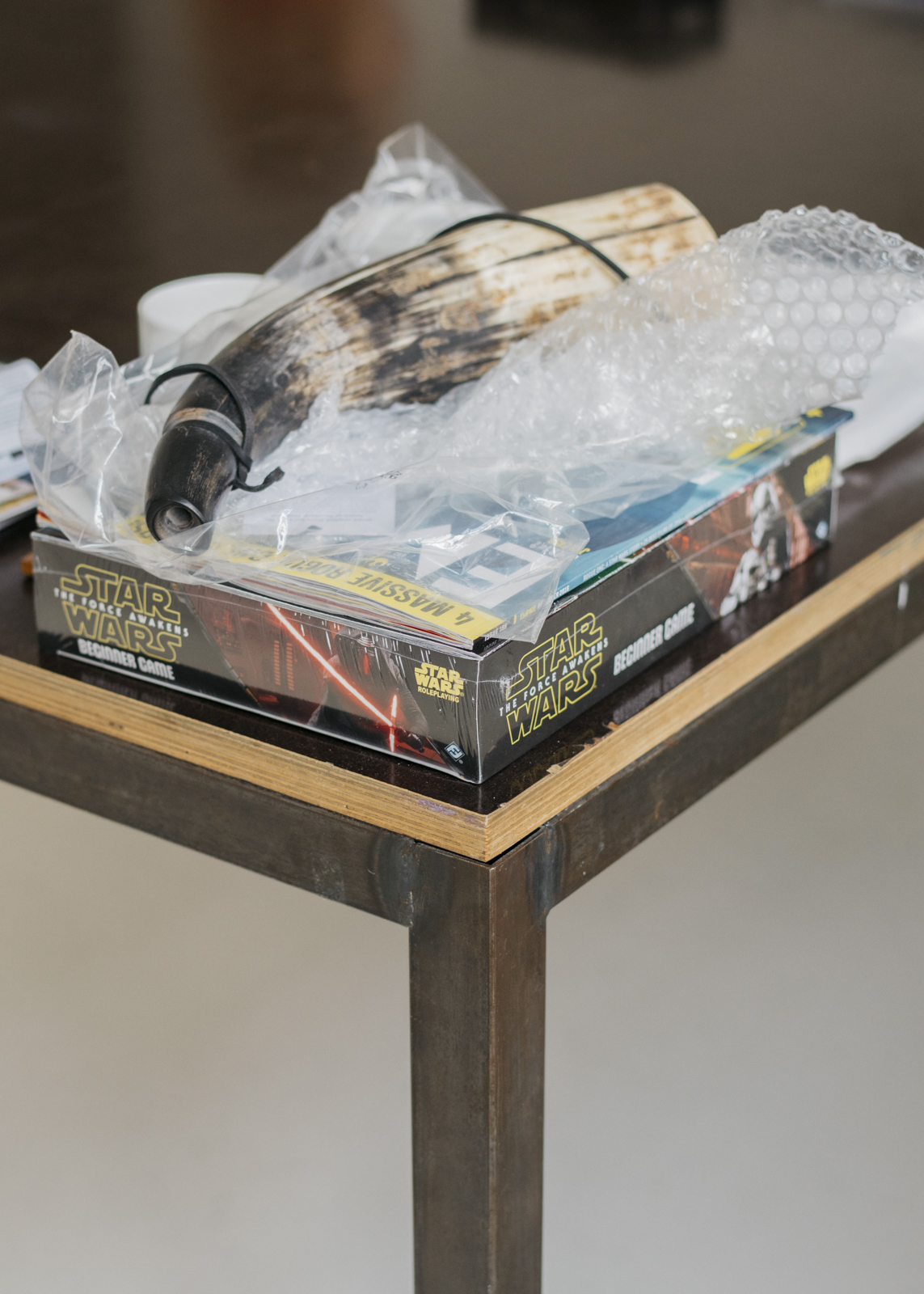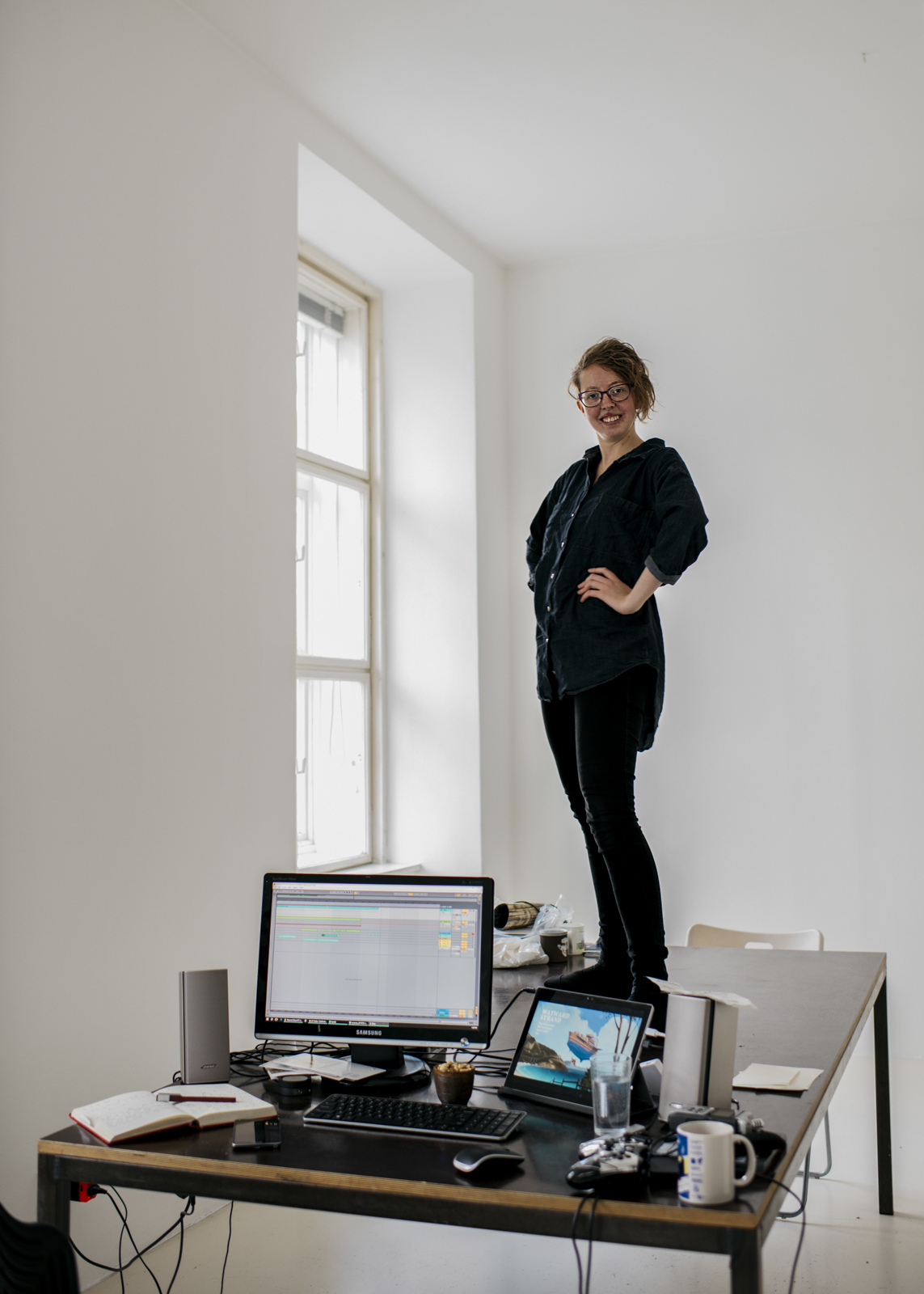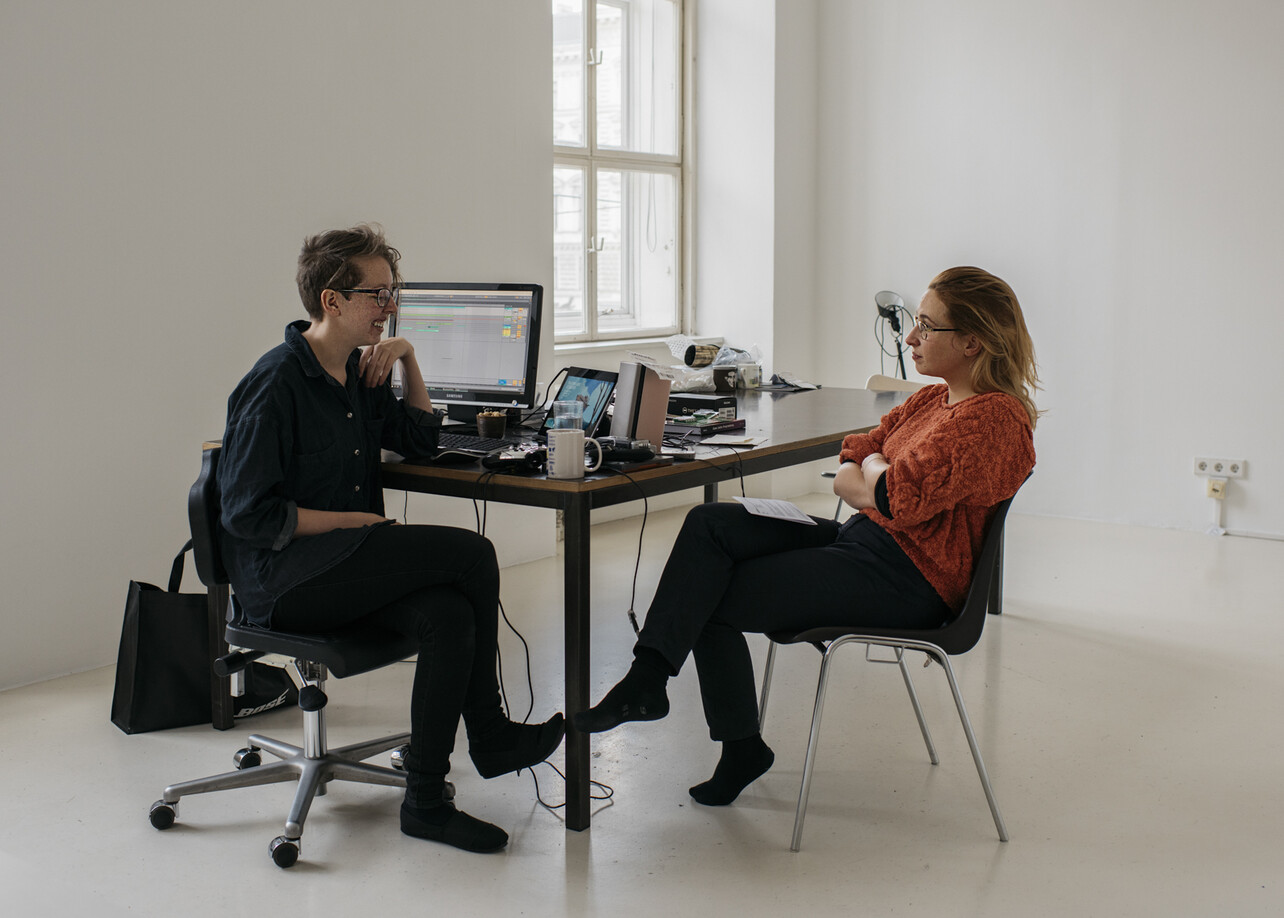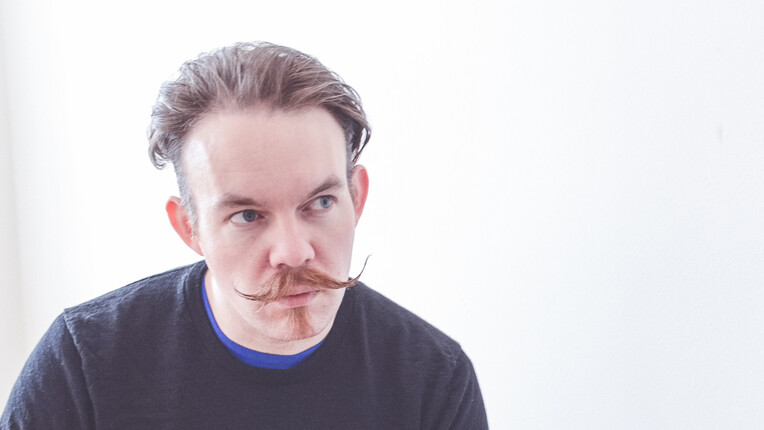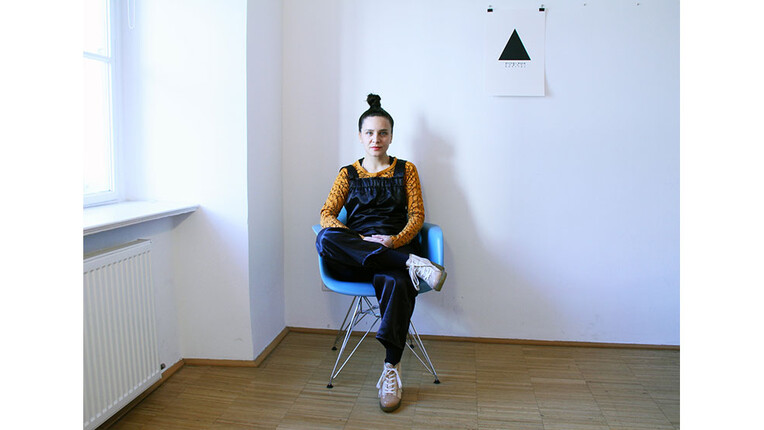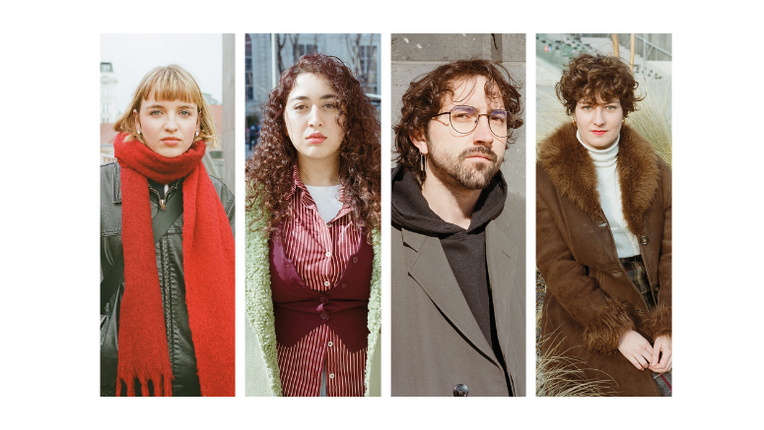
Vision trumps everything
Maize Wallin is an incredibly busy woman* who works in a variety of fields within the art/tech world. She is a curator and creator of live art shows and she predominantly works as a composer and sound designer in video games. In our interview we focus on this aspect of her life and we also have a little chat about things that still got too little attention in her industry, such as feminism and ageism.
Maize Wallin is an incredibly busy woman* who works in a variety of fields within the art/tech world. She is a curator and creator of live art shows and she predominantly works as a composer and sound designer in video games. In our interview we focus on this aspect of her life and we also have a little chat about things that still got too little attention in her industry, such as feminism and ageism.
You teach Composition for Interactive Media at the Australian Institute of Music in Melbourne. Without geek-speak: What is interactive composition?
When I think of interactive composition it’s where the audience member has some agency in how the sound plays out. A piece of music on a CD just plays from start to finish, you can pause it or play or rewind, that’s it. You can’t really say I want to reconstruct this whole thing. I’ve used other media to create more accesibility in the agency that the audience member can have.
A lot of people get quite turned off by just audio. Often vision trumps everything anyway. A lot of people play games without any audio, especially mobile games. Most of the statistics on twitter or facebook people will watch the automatically playing videos with no audio. And then, Gifs (which have no sound, editor’s note) are way more popular than videos, anyway! People are usually used to dealing with visual. I try to use that bias and intuition, to go through to audio so people can play with music.
Do you have an example for such an „audio play“ of yours?
I’ve been working on little game-like things, I call them interactive media, because unlike mainstream games there’s not necessarily a win-lose state, you just explore. It’s getting more popular in games now, which I think is good, because I don’t really like losing. I’ve been making these environments where you can interact with little objects, turn on and off different sounds, re-arrange different sounds. Also I like the feeling that you can just walk away from something that makes a sound. You can make this sort of journey of composition. You can have a complete piece with a start and finish. In most of my games when you start there is total silence and it’s not until you interact with something that the music starts. I am yet to get to a point where I get the player to get back to silence in the game, but I am playing with how musical scores and structures can relate to level-design, to figure it out. I’m exploring how people interact with sound.
The „player type“ of your games is rather a contemplative person, is that right?
If I wanted to fit into mainstream games and commercial – and that’s not a large part of my work – I definitely used other parts of my creativity to sustain that. With these games it’s just a fun little thing. I bring my gallery work into a digital world, which often makes it more accessible.
Film often uses sound to emphasise the events happening on screen and create emotions they want the recipients to feel. What’s its purpose in games?
I guess in games the big one that sound does is notification. Whether your health is going low, or there’s an enemy off screen. The audio that is really tight to game mechanics is the notification of things, that aren’t obvious otherwise. The role is also what we call decluttering. There is often not so much screen real estate - the space that different bars, stats and things going take up. If you had these notifications all on screen you may as well have none, because you can’t really pay attention to any of those. So I put a lot of those in audio and have all the effects stack up to create the musical score and atmosphere.
The other large part of sound design in games is physicality and texture. Obviously if you are looking on a 2D screen even if the image is 3D you don’t get the sense of weight or how fast and slow things are happening. As well as making scary horrible things sound like they are comedy we can do it the other way round where somebody cuts into a birthday cake and it’s horrific. We can do the same thing on the physic‘s side. We can make something sound a lot bigger than it is. When I have to do space ship doors there’s a difference between „Fap“ and „Boooooohhtt!“ while visually the same thing is happening.
You are a „heavy tweeter“ and your account @MaizeWallin shall be highly recommended to our readers at this point. I discovered this tweet by @ChappellTracker in your timeline. Why do you think it is the „worst cover art choice on so many levels“?
The community that we have the most contact with are the indie game developers. Having an image like that which is sort of a rip-off, or a rif-off, of Call of Duty, those BIG military games, which are AAA games, meaning with a big budget like Hollywood films, is what we want to get away from in indie gaming. It sucks to see this ouside view. People who run orchestras go „What’s video games? Oh, it’s military stuff. And let’s put a cello with it.“
Another thing you discuss on twitter are gender issues. Working in tech & games: Is it sometimes still an issue that you are a woman in your daily working routine, or even on a meta level?
Yeah! One tweet I really liked recently was someone did the Bechdel test, but for women working. So the question was: Have you interacted with another woman in your office or in your work today? I’m so lucky today! But usually, it’s No.
A lot of professional women have women’s networks and things which we always go to to bounce off ideas even if it’s like „Hey do I come off as catty in this e-mail”, which is a shit word, because if we were men it wouldn’t be catty, it would be assertive or some other positive thing. Other times it is weird, inappropriate jokes or actions that could be seen as just „cheeky“ but that really add up to intimidation, and making women feel small.
With the different time zone to home I‘m missing a lot of my online network and I’m sort of realizing or re-realizing the tension when I walk into offices or meet-ups that are all men. In combination with what I know is not a mainstream view of games often. For example I really like games that don’t have an objective in a traditional sense. There‘s just a lot of levels to not take me seriously on. Age is one as well. Ageism is a big issue in games as well.
Recently the Forbes 30 under 30 were released and it’s almost a meme in games that as soon as you hit 30 years old that’s it. „If you haven’t made it yet, that’s it“, which is pretty scary. On the other hand being young is another reason for people not to take you seriously. I struggle with that a lot.
Often it is just jobs, the story we all know: Men going for jobs they are only 50% qualified for and women who are going less while 150% qualified. That happens a lot, even though I feel like that I’m pretty confident how quick I can pick things up, I just dread that first day at the job where everything is new, everything has to be introduced to me, how useless I’m gonna feel and how many men are gonna be there, why aren’t there women already? What happened to them?
I’m sure you’re a role model to other women in the (indie) game industry.
I hope so!
What’s your female role model, in your business?
Maybe not in my business. Björk is my role model. She is Punk in a really nice – not nice – but cool way.
In my own industry it’s super hard. You could pinpoint one of the women who founded SEGA. That’s amazing. But it feels not very direct. I guess at the same time, because of the home of games being so online-based, people feel more quickly peers, because you have that direct access to someone. Again, related to ageism – but most of the people in our industry are really young! So you’re often competing with graduates, even if you have more experience.
Broken Rules, the people who invited you to come here as an Artist-in-Residence of Q21 are also men. Very nice guys, I have to admit. Are you working on something with them?
We co-work together and I’m more developing my own art which is pretty cool. I use them as a resource to get around and meet people. It’s always interesting to compare different communities, I’m a very community-focussed person. It’s cool to see what structures are in place here. Jogi and SUBOTRON seem to be such a big resource, which gets people together. That seems to be a lot of pressure for one person and I wonder how sustainable that is, but also, you know, cool.
What do you think is the sound of the future?
All our tools are becoming way more accessible. You can download engines and use them right away. There is a lot you can do in making games before you know how to program, which is great for minorities or people who have been pushed out of tech.
On the music side I guess we are seeing more celebration of DJs and producers and people who are making up their own rules. That is pretty nice and very different to the traditional music, which is all about rules – and then forgetting them
I think that unfortunately most of the industry standard music software is still pretty expensive, especially compared to on how much money you can make back on that. Maybe the music industry can learn from games a little bit on that side of accessibility. Also we have a lot of iPad Apps and stuff for making music, and more games as well. The future will be probably more socialist in that aspect.
Did you have a traditional training in music and did you have to forget certain things you learned to do your job well?
I wasn’t classical trained, but I was in traditional education. A lot of the theory has become muscle memory and as far as problem solving everything is a lot quicker, that is the benefit of knowing music theory and being trained in that way. But it can be hard to communicate to developers when I use a language that they don’t. That’s a really large part of my job.
When I’m consulting with teams or teaching about what sort of musical things they could take into account and how their music system could work or how they could work with a composer… The big thing I struggle against and why I do so much teaching is that a lot of dev („development“ editor’s note) teams are pretty intimidated by working with a composer. They say „I don’t know enough about music, composers are expensive“…, even though most of them don’t work for as much as a programer. I’m hoping to break that down. The music in your game is still game play. Yeah, one day there will be jobs.
Artist-in-Residence Maize Wallin was invited by the Q21 partners and indie game developers Broken Rules.
Website of the artist: www.maizewallin.com
Website Broken Rules: www.brokenrul.es
Interview: Margit Mössmer
Photos: Susanna Hofer
